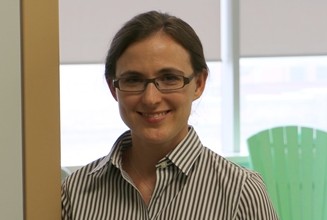
Mario Hayden was diagnosed with Type 2 diabetes when he was just 13-years-old, now the 19-year-old is leading a productive life because of research being done at the Children’s Hospital Research Institute of Manitoba and Children’s Hospital-HSC Winnipeg.
“Diabetes has changed my life a lot. When I found out I had it my heart sunk, it’s hard to explain. It’s hard that I can’t eat what I want, I have to take insulin every day and no one in my immediate family knows what I go through,” Hayden explains.
MORE: UNRAVELLING THE MYSTERY OF LYME DISEASE: wHY CANADA NEEDS TO DO MORE
At the Children’s Hospital Research Institute of Manitoba, the research facility owned and operated by the Children’s Hospital Foundation of Manitoba, Dr. Allison Dart, MD, MSC, FRCPC, is working to help youth determine the risk factors for kidney disease in youth with Type 2 diabetes.
Currently Dr. Dart, who is also a paediatric nephrologists at HSC Children’s and an assistant professor in the Department of Pediatrics and Child Health at the University of Manitoba, is leading a study that aims to identify the most important risk factors connected to early kidney disease in youth with Type 2 diabetes. Since Type 2 diabetes is a relatively new disease in youth, there isn’t a lot known about the factors that lead to kidney failure.
The project is entitled Improving renal Complications in Adolescents with Type 2 diabetes through REsearch (iCARE) cohort study. Currently there are 162 youth from Manitoba and Northwestern Ontario enrolled in the study, however, Dr. Dart and her team are hoping to enrol up to 400 more to expand iCARE into a national study.
Participants are recruited through the Diabetes Education Resources for Children and Adolescents (DER-CA) and the pediatric renal/Type 2 diabetes combined clinic located at HSC Children’s and have regular visits at the Children’s Hospital Research Institute of Manitoba. DER-CA provides education on diabetes to affected children and their parents/caregivers and the community with services provided by a physician and an education team consisting of a dietitian, nurse educator and social worker.
MORE: DON’T LET NEW HEALTH TECHNOLOGIES CATCH YOU OFF GUARD
During their visit participants take part in a full day of testing once a year that includes blood and urine tests, a formal test of their kidney function, a 24-hour blood pressure monitor and an ultrasound of their kidneys. A questionnaire is completed that helps researchers determine their stress levels and they also supply a hair sample so that the stress hormone cortisol can be measured directly by a lab in London, Ontario.
“We’re trying to decrease dialysis in kids with Type 2 diabetes. They’re reaching end stage kidney failure in their mid-30s at which time they need dialysis or a transplant. They seem to have a more rapid progression,” said Dr. Dart, a member of the Diabetes Research Envisioned and Accomplished in Manitoba (DREAM) research team based at the Children’s Hospital Research Institute of Manitoba.
“This is a high risk group of kids who have adult complications in childhood. The risk factors linked with kidney failure in adults do not explain what we are seeing in youth. This study is using state of the art testing to measure traditional things like blood sugar control, blood pressure, and kidney filtration to more accurately assess if they contribute to kidney disease in youth. We are also testing links with stress and mental distress, which we think are also important in this disease, potentially because they increase inflammation in the body.”
MORE: HELPING KIDS REACH THEIR FULLEST POTENTIAL
In addition to taking part in the iCARE study, Hayden is also a member of the iCARE Participant Advisory Group that was created by Dr. Dart and her research team earlier this year. The goal of the group is to ensure the latest research is translated into improvements of care and outcomes for youth with Type2 diabetes.
“One of the main reasons I participated in the focus groups is so I can voice my opinion on this illness and maybe make it a little better for other people. Being part of the advisory group has helped me realize that I’m not the only one going through this and that if we all stick together as a big support link we can all get through it,” Hayden says.
Working with other members of her research team, Dr. Dart is preparing to publish the initial results soon and hopes to expand the study to seven other sites across Canada.
“As a kidney specialist, I see these kids in clinic with established kidney disease and don’t have good data to know how to best treat them. As a clinician this is frustrating,” says Dr. Dart. She adds, “We started this study to gain a better understanding of what’s causing complications. This knowledge will then lead to target treatments to prevent or delay kidney disease.”

